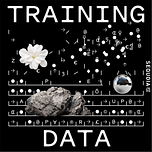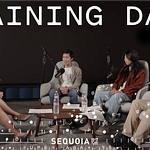Post methodology: Claude 4.0 via custom Dust assistant @TDep-SubstackPost with the system prompt: Please read the text of the podcast transcript in the prompt and write a short post that summarizes the main points and incorporates any recent news articles that provide helpful context for the interview. Please make the post as concise as possible and avoid academic language or footnotes. put any linked articles or tweets inline in the text. Refer to podcast guests by their first names after the initial mention. Light editing and reformatting for the Substack editor.OpenAI just launched its most ambitious AI agent yet—the new ChatGPT Agent that combines the company's previous research tools into something that can actually work like a human assistant on a computer. The team behind it, led by Isa, Casey, and Edward, merged their "Deep Research" and "Operator" capabilities to create an agent that can handle complex, multi-step tasks over extended periods.
What makes this different? The agent has access to multiple integrated tools—a text browser for efficient research, a visual browser for clicking and scrolling through websites, a terminal for running code, and API connectors for accessing services like GitHub. All these tools share state, meaning the agent can seamlessly switch between them, just like you would on your computer. It can research restaurants, book reservations, create spreadsheets, generate slide decks, and even handle online shopping—all in a single request that can run for 30 minutes or more.
The technical breakthrough comes from reinforcement learning that trained the agent to fluidly combine these tools without explicit instructions. As Casey explained, "we essentially give the model all these tools and then lock it in the room and it experiments." The small team (around 10-15 people across research and engineering) trained the system on thousands of virtual machines, creating a data-efficient approach that can teach new capabilities with much smaller datasets than traditional pre-training.
Safety remains a key focus, with extensive red teaming and monitoring systems in place. The agent can ask for permission before taking potentially harmful actions and includes safeguards against misuse. Recent coverage from tech outlets has highlighted how this integrated approach represents a significant step forward in AI productivity tools, potentially changing workflows for both consumers and professionals.
The team sees this as just the beginning. Isa noted they're excited about "pushing different forms of interacting with the agent" and eventually having agents that can initiate tasks without being asked. For now, it's available to ChatGPT users and represents OpenAI's most capable tool for real-world computer tasks to date.
Hosted by Sonya Huang and Lauren Reeder
Mentioned in this episode:
Operator: OpenAI’s research preview AI agent launched in January 2025 that can autonomously control a web browser to perform tasks like booking reservations, shopping online and filling out forms by using visual interface elements.
Deep Research: OpenAI’s AI agent that can extensively browse the internet to gather and synthesize information from multiple sources into comprehensive research reports with citations, designed for complex research tasks that require deep analysis. (Training Data episode)
World of Bits: OpenAI’s 2017 research platform that attempted to train reinforcement learning agents to complete tasks on the internet by performing low-level keyboard and mouse actions, serving as an ambitious but premature precursor to today's more successful computer-use agents.










